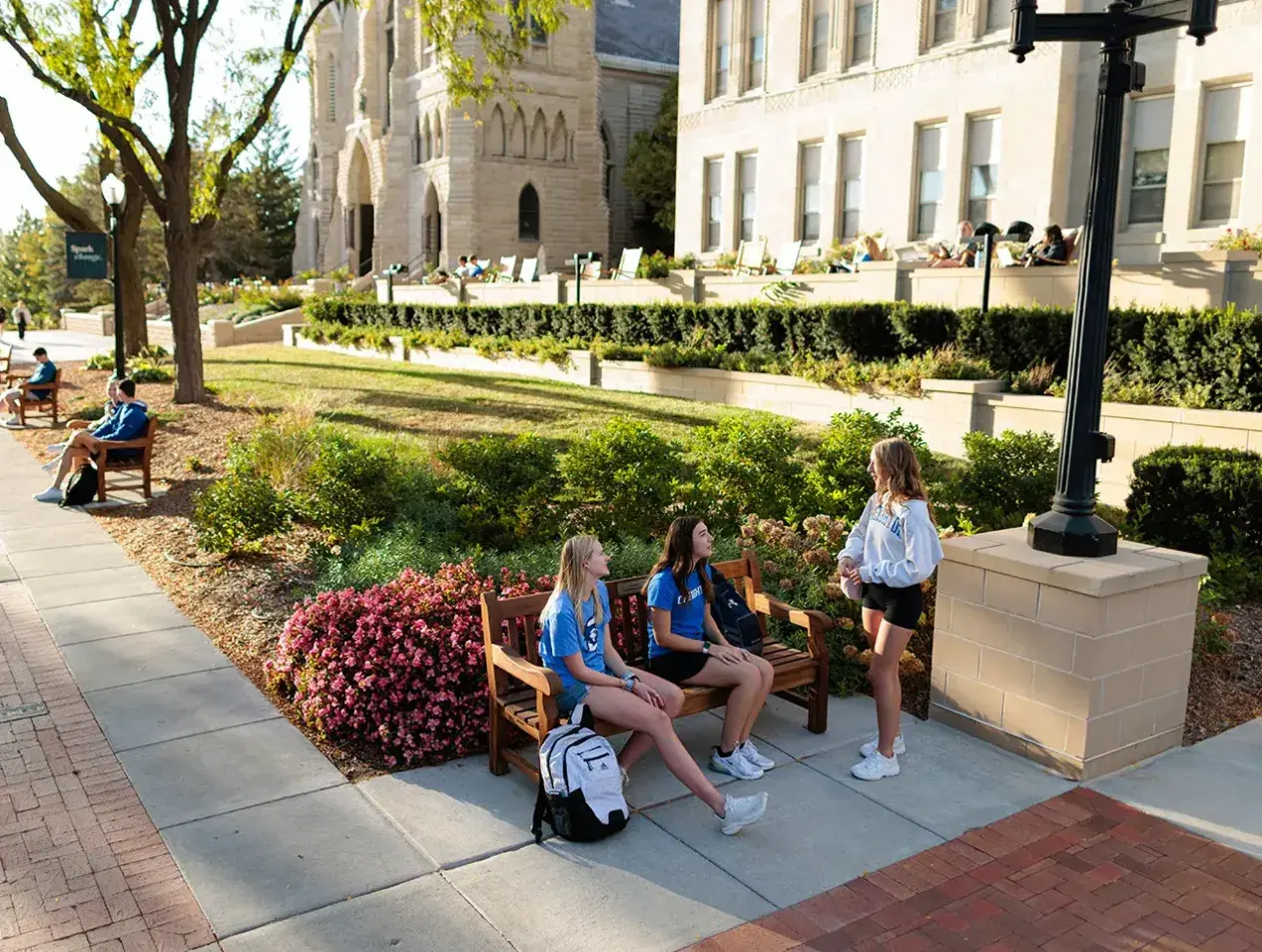Creighton’s Omaha Campus is closed Friday, Feb. 20, due to winter weather. All on-campus events, in-person classes, and clinics are canceled. All other classes and events will take place as normal.

Institutional Accreditation
Institutional Accreditation at Creighton
The institutional accreditation process evaluates how effectively an entire institution fulfills its mission and demonstrates public accountability. This includes an assessment of its educational programs, governance and administrative structures, financial stability, student support services, human resources, learning environment, student outcomes, overall institutional effectiveness, and engagement with internal and external stakeholders.
The HLC symbol signifies that Creighton University is accredited by The Higher Learning Commission (HLC). Accreditation serves the public by assuring and continuously improving the quality of higher education. The Higher Learning Commission (HLC) is charged with overseeing the accreditation of degree granting, post-secondary, not-for-profit and for-profit institutions. There are five other U.S. regional accreditation bodies.
Higher Learning Commission
The Higher Learning Commission (HLC) accredits an institution as a whole, rather than individual programs within an institution. The four Criteria for Accreditation are the standards of quality by which HLC determines whether an institution merits accreditation or reaffirmation of accreditation. These four criteria are as follows:
- Mission
- Integrity: Ethical and Responsible Conduct
- Teaching and Learning for Student Success
- Sustainability: Institutional Effectiveness, Resources, and Planning
Pathways: The Open Pathway
The Higher Learning Commission (HLC) offers two pathways for institutions to achieve and maintain accreditation – Standard and Open. Creighton has selected the Open Pathway. The Open Pathway is a 10 year cycle that includes a mid-cycle virtual review of the assurance argument (year 4), an innovative improvement project known as the Quality Initiative, done years 5-9, and a comprehensive evaluation in year 10 (on-site visit, review of assurance argument, Federal compliance review).
Creighton University
Original Review: 1917
Last Review: 2017
Next Review: April 12-13, 2027
Comments and Questions
We welcome input and ideas from all students, staff, faculty and others.
You may direct comments and questions to Contact_Us-HLC@creighton.edu
For specific inquiries about the University’s affiliation with HLC, please contact:
Gail Jensen, PhD
Creighton University Accreditation Liaison Officer to HLC
402.280.3727
gailjensen@creighton.edu
For HLC general information, including policies/procedures for filing complaints, visit the HLC website.


